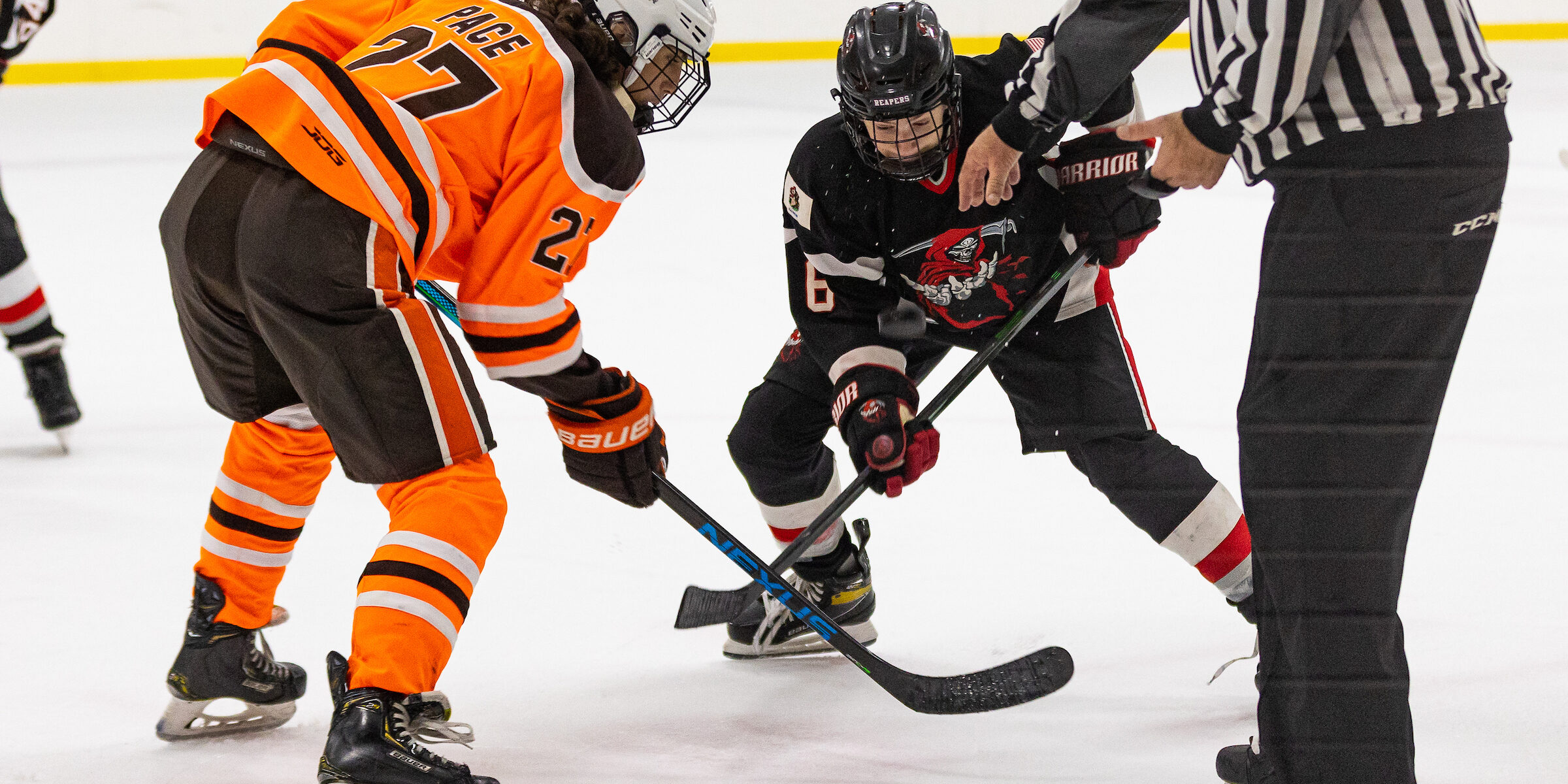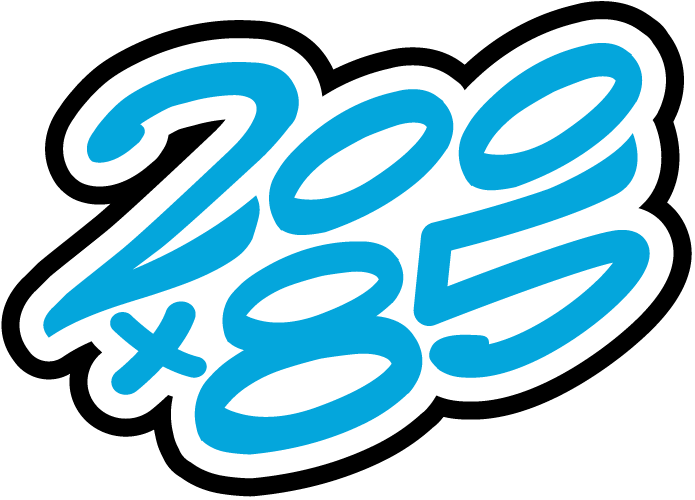
PLAYING UP A LEVEL – RIGHT OR WRONG?
PLAYING UP A LEVEL – RIGHT OR WRONG?
By 200×85/Kevin Mann and Mike McPartlin (Head Master Bridgedale Academy)
We have all heard the reasons – good and bad…
- My child is not challenged.
- My child is getting bored playing with the same kids and age level.
- He will only get better surrounded by older players.
- Stronger competition pushes development.
- If they are good enough, they’re re old enough.
- The best coach in the club is at the older level.
- They are in the same grade as the older players.
- Our advisor say’s he’s the best player in our league.
- Our club/association doesn’t allow us to play up but this other program will take him.
Flipside:
- Teams do not exist to be a development platform for your player.
- Players develop in practice and it’s their own commitment to their own development that determines their future. Competition is found in the mirror.
- Playing up only means you take a 4th line spot with no specialty team time on PK, PP, fewer puck touches and less meaningful minutes of games.
- Player development happens by playing your age and being a bigger fish in a smaller pond.
- If coaching is equal, the leadership & confidence growth staying down will benefit them more.
- Being the best player on a team is not a detriment to future development.
Since our staff at 200×85 consider ourselves to be decent/knowledgeable hockey people – we wanted to share some thoughts on the following. We always get approached by parents who are considering whether his son/daughter could or should play up. I believe our thoughts on a player playing up are probably similar to a lot of coaches, certainly the ones we have worked alongside for 25 years. There is definitely the perception out there (something of a “myth” in my opinion) that a young player absolutely must play up in order to advance, but in reality that is far more often NOT true than true. So, with any player contemplating this decision, issues that should be taken into consideration include:
- If the player looking to play up will be an “impact” player for the older team (which for a forward means in the top 3 or 4, for a defenseman means in the top 2 or 3, and for a goalie means he’d have a bona fide shot to be the “#1”, then playing up could potentially be a good idea;
- Whether or not the player would be properly challenged at his own age level in practices and games (a theory being that SOME player has to be the best player on his team, and as long as it requires effort for that player to dominate, he’s probably OK at the level, but if that player is able to dominate WITHOUT EFFORT, then this could be a reason for playing up);
- The flip side of course is that if the player cannot reasonably expect to be that kind of impact player on the older team, he is virtually always better off playing at his own age level where he WILL have that kind of impact. And so personally, and including obviously for my own coached teams, I would only encourage a player to play up if he fit within that nutshell description;
- Even if they have the talent I also look at whether or not the boy is the type of player who NEEDS to be the best player on his team (i.e. for leadership reasons, for love-of-the-game reasons, the theory being that exceptional players are generally the best player on their team and their love for the game and/or drive to excel is “fed” by their being the top guy), and so should remain at his age level. This of course presumes he won’t be anywhere near the top dog at the age above;
- Style of play – Some players are simply not ready to play up from the perspective of their “style” of play. If they cannot physically handle the additional pounding from the older player’s they will either get manhandled, or more likely, they’ll have to change their style so they do not get killed;
- Physical/Mental/Emotional maturity levels – It wouldn’t take long for teams to figure out they COULD intimidate a younger/weaker player, and then they surely would. In fact, I believe this is something of an issue for any player who is not physically strong at their given age level but importantly. Staying at their age level will give them much more leeway to adjust and overcome this problem versus playing up a year where they have almost NO leeway. Some young boys hit puberty early and are physically ahead of their peers. But, social and emotional maturity will put them behind the older players and that is also key to being able to handle the jokes and insults, etc. of an older locker room). They may also see their current friends less and feel less connected in their social network.
- Another thing to consider for any youth player of high potential, is the quality of the program and coaching. If you have a coach at your given age level who understands the game and understands the processes of development and the paths a player may take to advance through bantams, midgets and juniors toward a college (and possible pro) career – why leave? You may not like or agree with what they tell you but my guess is that their only priority is to make your son/daughter a better and more complete player so they can hopefully move on to even higher levels some year;
- Avoid lesser AAA clubs that will take players who want you to play up next year because 1.) they do not have the depth of talent on their teams and, 2.) will do anything to try and weaken another club’s birth year level without any regard to the player’s well-being. There is no doubt in my mind that a lot of players from strong/deep clubs can go play on an older AAA team somewhere else, but those who chose not to, in my opinion…choose wisely.
The reality is that for every story of a player benefiting from playing up, there are two or three stories of the player regressing. Vladislav Tretyak (Russian Ice Hockey Federation) shared with us a recent 7-year study from Russia that confirms this fact.) The classic reasons for a “regression” are that the player (i.e. who is not an impact player at the older level) is not given the same kinds of opportunities to be the “go to” guy at the older level that he’d get at his own age, and whereas he might be the leader in his peer group, he is often relegated to being a follower on the older team.
Phil Kessel, the father of younger Phil (Pittsburgh Penguins) told me years ago that the best thing he ever did was have his son play at his appropriate age. Phil’s son played up the first two years of AAA hockey. The father did not want his son lost in the mix of playing with older players. He wanted everyone in the country to know who his son was. By keeping him at his age level gave the younger Phil a perspective of the all-around player (i.e. leadership, size, strength, speed, quickness, anticipation, edge, shot, skills, passing, unselfishness and hockey sense). Young Phil became the complete package and became the best 87 birth year player in the US and everyone knew who he was! Nylander (Toronto Maple Leafs) , Dvorak and Schmaltz all with the Mission 1996’s (AZ Coyotes) could have played at the 95 birthyear at any time in youth hockey. But, instead, everyone knew they were the top three 96 players around.
Dave Poulin, former NHL great and former Notre Dame head coach, said he never played “up” as a youth. His philosophy was that someone had to be the best player on his team, or in his league, and that almost all players he knew who eventually made it to the NHL were first at some point in their youth hockey career a player who fit into that category. He firmly believed that “being the go-to guy” fed the young player’s self-esteem and his desire to be great, and that this more than anything is what catapults players to reach the highest levels.
We have seen far too many parents who were hell bent on their kids playing up using the cliche line “of being more challenged”. Those parents spent more time rationalizing (as opposed to reasoning) to come to an answer as to WHY the boy’s should play up. Most of those boys and were never used in key situations, lost motivation and the parents simply made poor decisions for their child. They all thought they were helping their son’s development ~ but the reality was that they hindered it. There are probably more such issues, but these should get you started. But for my two cents, from the perspective of the all-around player (i.e. leadership, size, strength, speed, quickness, anticipation, edge, shot, skills, passing, unselfishness and hockey sense) can all be developed at your appropriate age level. Do what is BEST for the Child and do not rush the process!

